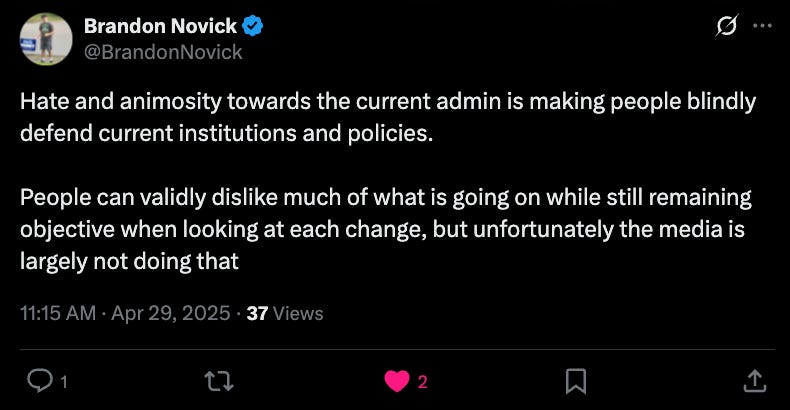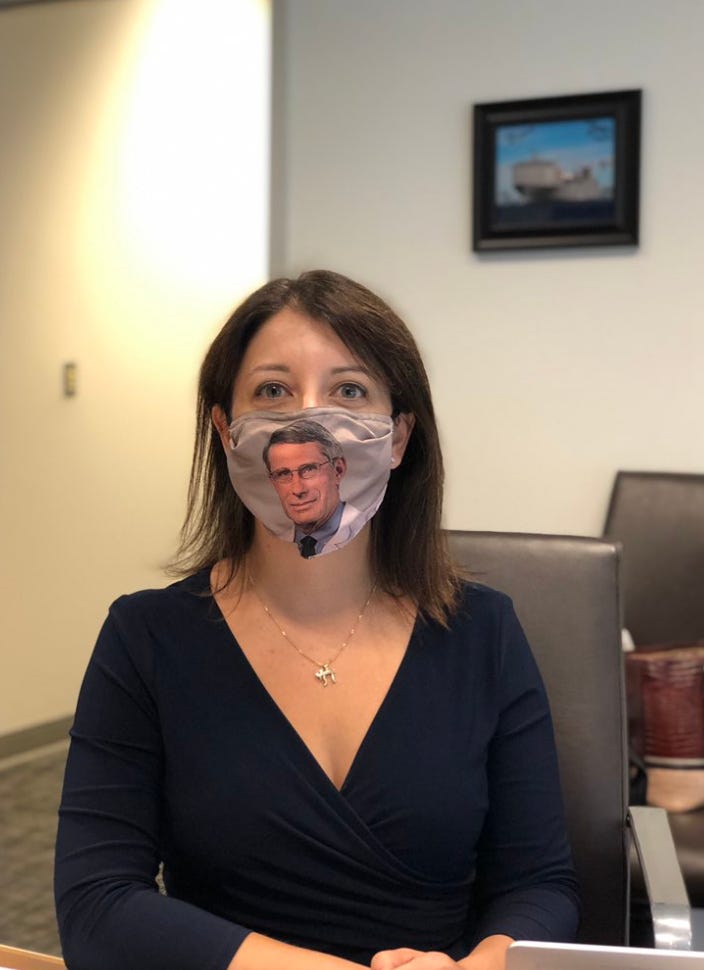A users guide to the media coverage of health and science in 2025
6 steps to ensure you read credible news and not propaganda
The media coverage of science and medicine has hit rock bottom. As one person puts it.
Here are my tips for how to read news stories in the era of biased and weak reporting.
Step 1. Fact check the source material. If you read an article that says Jay Bhattacharya supported the use of Ivermectin, locate the raw video or audio. You will find the article is factually wrong. Jay supported conducting randomized trials of ivermectin. I have had countless essays misinterpreted and misconstrued by illiterate journalists.
For e.g. this essay, read exactly what I said.
Step 2: Look up the quoted experts. If there is a quote by former CDC director Mandy Cohen, you can quickly find that she is the kind of scientist who actually thought cloth masking would make a difference (=/- praying to lord fauci?). AKA neither smart nor reliable
Another example. Michael Osterholm. How much of an ‘expert’ can you be if you were wearing a mask 3 YEARS after the pandemic started?
Step 3: Don’t listen to panicked statements from people who are worried about losing their jobs or funding. Of course researchers who are funded by taxpayers to study DEI will say that cancelling their funding will kill millions or billions of people and lead to a comet striking earth. But they are not objective. Someone fearful of their own job/ or someone recently laid off has no objective view on their value. Just ignore them, and seek out third parties who are not directly affected.
Step 4: Put things in context. If you read CDC has laid off 10% of the work force, ask how big the workforce was 3 years ago or 5 years ago. Often the media is depriving you of broader context that shows it is not that big a deal.
Step 5: Anyone who uses the word “misinformation” is an idiot. Scientific arguments exist on a spectrum from high to low confidence. And even some weak arguments contain a kernel of truth. For instance, COVID vaccines did harm one group on average— for mRNA young men btw the ages of 18-24, high confidence, and 12-40, slightly lower confidence. Misinformation is a word used by weak thinkers who don’t understand the nuance of claims. It is poorly defined and has been overused to the point of meaningless. Often they mean to say: I just disagree.
Step 6: Read prior stories from that reporter. Some reporters are hopelessly bad. We analyzed NYTimes corrections, and found one reporter is a correction factory. If a single spine surgeon for e.g. was an outlier like this with so many botched surgeries, you would suspend their license, and yet, reporters face no accountability.
These are 6 tips to combat the current media, which is doing a horrific and dishonest job of covering this administration. If you want to support someone who is objective, please subscribe.







Excellent post that I’m sharing immediately.
Very true about judging scientific sources, and media writers. As a former reporter, govt. Spokesbabe and then corporate public affairs manager (40 years in all) — i encountered quite a few sincere and humble scientists, (and a few of their opposites). While activists posing as reporters were far more common than anyone might imagine.